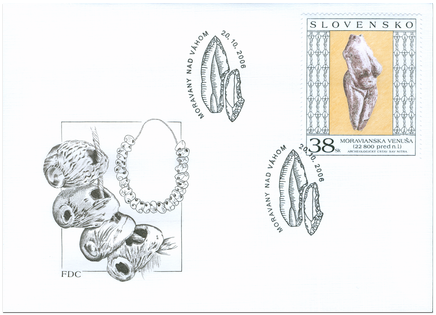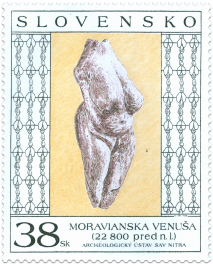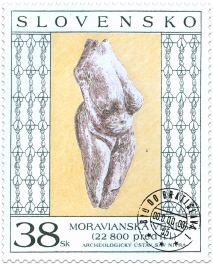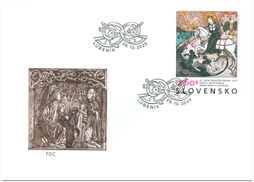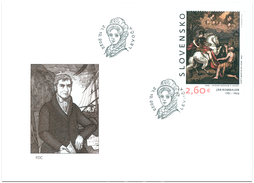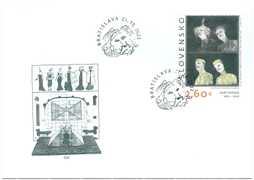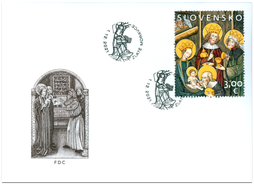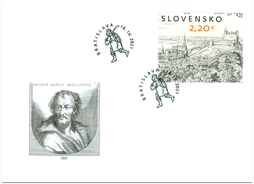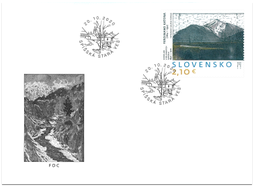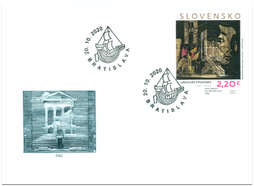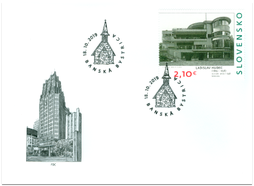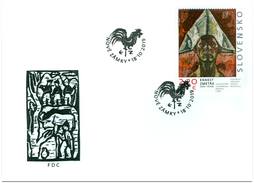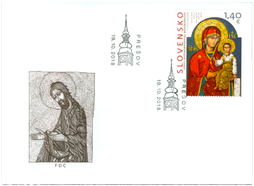FDC 386 Date of issue
20.10.2006 Face value
38.00 Sk
© Slovak Post, 2006 The oldest documented examples of artistic expression on the territory of Slovakia are from the Palaeolithic period, or Stone Age. These consist mostly of small objects such as amulets, pendants, and beads. These represent a separate kind of artistic/practical article. An exceptionally artistic example of such object was found in the form of a woman with exaggerated sexual features. The Moravany Venus figurine, of mammoth ivory, was carved around 22,800 B.C. (according to Carbon 14 dating) by a modern human. De-emphasizing other parts of the body, the sculptor attempted to stress symbols of human nurturing. Woman, as the emblematic giver of life, had the most significant status in the society of the period. This emphasis on female attributes in the recent Palaeolithic appeared throughout anthropomorphic sculptures of women, as documented by finds in various parts of Europe. Significant discoveries often have strange histories. The Moravany Venus figurine, discovered before the Second World War at an excavated mammoth hunters’ camp at Moravany nad Váhom-Podkovice, was taken to Germany. Later, a casting was displayed at the Museé de ľ Home in Paris. Only in 1967 did the original permanently return to Slovakia. Though the precise conditions of the find have never been reliably ascertained, the Moravany Venus figurine remains a key document of artistic sensibility, and represents a superior specimen of artwork created by bearers of Gravettian culture. The first day cover features a pendant from the era of Gravettian culture, discovered in the Čertova pec cave near Radošina. The pendant consists of pierced molluscs of the Melanopsides species. The cancellation mark features a motif of notched radiolarite blades from the Lopata dig of Gravettian culture at Moravany nad Váhom. Ivan Cheben
Show less© 2024 POFIS - Postal philatelic service. All rights reserved

